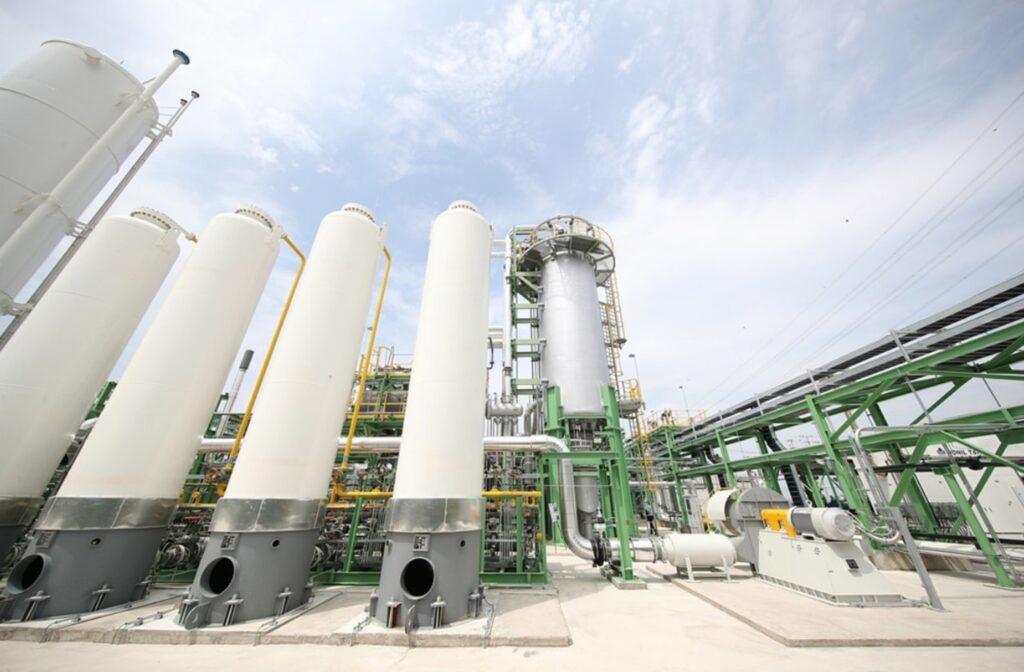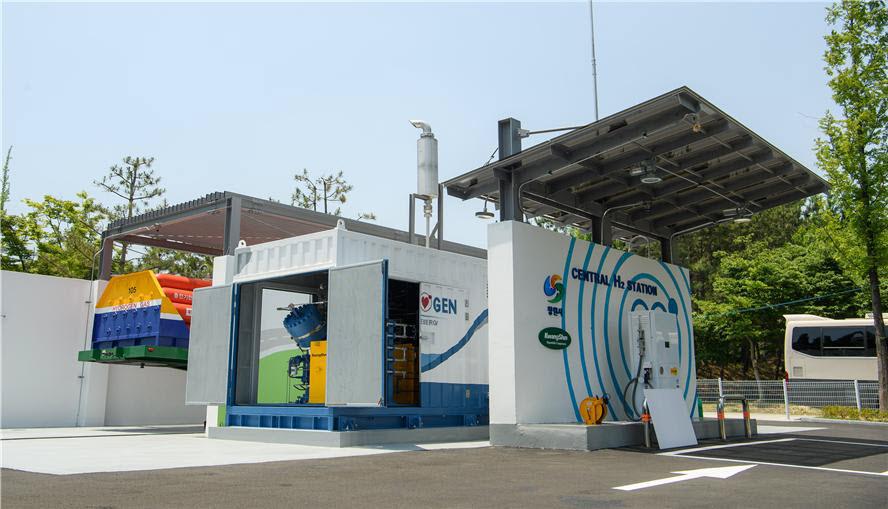
News | Industrial Combustion Equipment
All the latest News on our company
South Korea to create six ‘hydrogen cities’ that would use H2 in buildings and transportation
Posted on: 22 / 01 / 2023 | 0 Comentarios | Tags: Corea del Sur, E&M Combustión, Hydrogen cities, South Korea
South Korea will create six “hydrogen cities” that would use Blue Hydrogen as a fuel in buildings and transportation as part of daily life. The investment planned by the Government amounts to 193 million euros, and includes fuel cells feeding buildings, a new blue H2 project and port, new hydrogen pipelines, service stations and vehicles. The intended objective is economic revitalization, energy savings and reduction of carbon emissions.

Taking this approach, the South Korean government has announced funding of 240 billion won ($192.7 million) to create six “hydrogen cities,” focusing on fossil gas-derived blue H2 with hydrogen capture and storage. carbon.
The central objective of the “Creating Hydrogen Cities” project is to enable hydrogen to be used in daily life, such as housing and transportation, in six cities across the country: Pyeongtaek, Namyangju, Dangjin, Boryeong, Gwangyang, and Pohang.
Each of these cities will receive 40 billion won annually for the next four years, half of which will come from national funds and half from local government.
Hydrogen Cities in Korea
Envisioned plans include the construction of a new hydrogen port and a “special blue hydrogen production complex” in Pyeongtaek, with approximately 15 km of new H2 pipelines connecting the plant to the port, transportation bases, and fuel cells. which would provide heat and power to apartment and commercial blocks.
For its part, Namyangju, near the capital Seoul, aims to become a “self-sufficient city centered on a hydrogen economy differentiated from other new cities”, according to a government statement. Here, fuel cells will be installed in public housing, public offices, and sports and cultural centers, along with H2 filling stations, buses, cleaning vehicles, and pipelines, along with new biogas-based H2 production plants and conversion of residues in hydrogen.
Similar facilities would be set up in Dangjin and Boryeong, which would build plants that produce hydrogen from organic waste such as cattle droppings.
In turn, in Gwangyang, in addition to the use of hydrogen in apartment blocks, swimming pools and buses, there will be a demonstration project for hydrogen-powered tractors and drones. The city also intends to build a hydrogen-only port terminal, but it is not yet clear if it will be financed with the new government money.
Finally, Pohang will also use fuel cells in housing and public facilities, and install filling stations for H2 buses and around 15 km of pipelines to connect hydrogen production at local steel mills with the aforementioned utilities and the Blue Valley industrial complex. A demonstration green hydrogen plant using electrolysers will also be built at the industrial complex, but its size has not been disclosed.

Success of the pilot project
This government announcement follows the successful implementation of three ongoing “hydrogen city” pilot projects, in which similar, but smaller schemes were established in the cities of Ulsan, Ansan and Jeonji.
“Based on the results obtained by the pilot project so far, it is planned to seriously promote the hydrogen city creation project starting this year. It will not only contribute to economic revitalization, saving and reducing carbon emissions, but also accelerate the transition to a carbon-neutral society,” said Gil Byeong-woo, director of urban policy at the Ministry of Land, Infrastructure and Transport.
South Korea’s plans to decarbonise through a hydrogen economy that will rely heavily on imports are controversial, with critics arguing that future energy costs would be so high over the next few decades that products made in the country would not be competitive with respect to those produced elsewhere. However, the Korean government believes that due to its dense population and isolated location, it would not be able to meet most of its future energy needs, as well as its net-zero energy commitments, through renewables, unlike most of their counterparts in the West.
E&M Combustion
E&M Combustion is an engineering and manufacturing company with the philosophy of providing specific solutions in Industrial Combustion processes. The company focuses its activity on the development of Burner Technologies with low polluting emissions and significant energy savings. E&M Combustion is an international benchmark in ATEX and NEC Burners, Hot Gas Generators and Combustion Equipment for alternative fuels such as Hydrogen and Biogas.
Fuentes: Hydrogen Insight, The Korea Times and agencies


